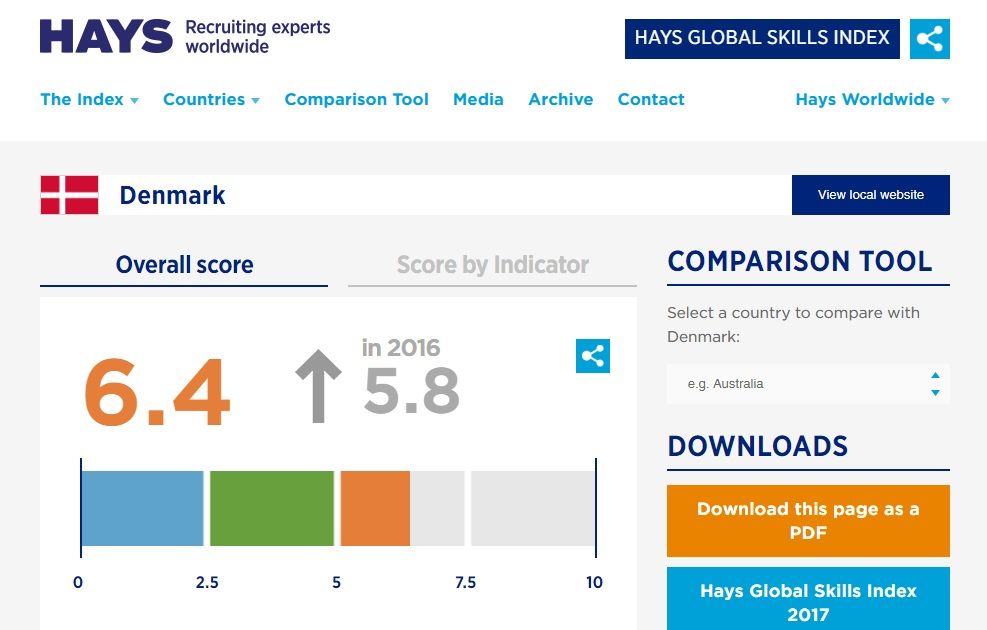According to a new index published by the recruitment firm Hays, in co-operation with Oxford Economics, out of the 33 countries in the report, the screws have been tightened most in Denmark’s labour market.
The annually-published Hays Global Skills Index (here in English) showed that Denmark’s score in terms of the gap between available jobs and the number of people to fill them had increased from 5.8 to 6.4 from 2016 to 2017, while the average of the 33 countries mentioned in the index fell from 5.4 to 5.3.
“Low employment in the Danish labour market has continued – especially regarding the highly-skilled labour market. However, there is a mismatch between the skills required by businesses and those skills available in the labour pool,” said Morten Andersen, the head of business for Hays Denmark.
“This is evident in the amount of vacant positions across several industries and sectors, which are rarely filled with available personnel. Education, training and retraining of individuals continue to be of vital importance in order to accommodate the needs of businesses going forward.”
READ MORE: A shortage of labour could slow growth, DI warns
Bane to outside recruitement
The index score of 1-10 is based on seven indicators: Education Flexibility, Labour Market Participation, Labour Market Flexibility, Talent Mismatch, Overall Wage Pressure, Wage Pressure In High-Skill Industries and Wage Pressure In High-Skill Occupations.
The national confederation of industry, Dansk Industri (DI), contends that the index provides another example of a Danish labour market under pressure, particularly when it comes to attracting highly-skilled workers from abroad.
“With the increase of the Pay Limit Scheme over the past year, it’s unfortunately become more difficult for companies to recruit labour outside the EU. That development is heading in the wrong direction and compounds the pressure on the labour market instead of easing it,” said Steen Nielsen, the deputy head of DI.















